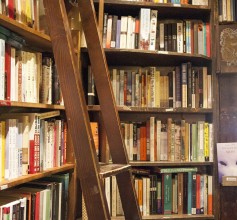In our last workshop, we explored the Stoic idea that the happy life is one of self-sufficiency, that is, a life that only finds value in things we can control, namely our character, judgments and actions. Such a life reduces its dependency on external goods, which are inherently unstable and vulnerable to fortune, and focuses on personal, internal goods, namely, virtue. By doing this, we are able to control our passions and effectively use our reason for correct judgments and right actions.
This conception of the happy life comes under question in Euripides’ tragedy Hecuba. This play challenges the idea that self-sufficiency and good character are invulnerable to reversals of fortune or to the instabilities of external good. It shows that good character is in fact vulnerable and depends, in important ways, on external goods, such as love, friendship, fairness, justice and trust. Hecuba’s life is stripped of these things, and her good character is undermined. In this workshop, we will explore Hecuba’s story and discuss the nature of human vulnerability and its relation to the good life. More importantly, we will apply the lessons of Hecuba to our own lives.
